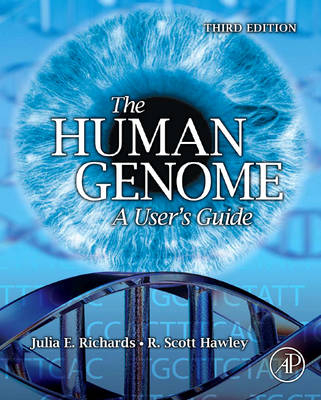
The Human Genome
Academic Press Inc (Verlag)
978-0-12-333445-9 (ISBN)
Significant advances in our knowledge of genetics were made during the twentieth century but in the most recent decades, genetic research has dramatically increased its impact throughout society. Genetic issues are now playing a large role in health and public policy, and new knowledge in this field will continue to have significant implications for individuals and society. Written for the non-majors human genetics course, Human Genetics, Third Edition will increase the genetics knowledge of students who are learning about human genetics for the first time. This thorough revision of the best-selling Human Genome, Second Edition includes entirely new chapters on forensics, stem cell biology, bioinformatics, and societal/ethical issues associated with the field. New special features boxes make connections between human genetics and human health and disease. Carefully crafted pedagogy includes chapter-opening case studies that set the stage for each chapter; concept statements interspersed throughout the chapter that keep first-time students focused on key concepts; and end-of-chapter questions and critical thinking activities. This new edition will contribute to creating a genetically literate student population that understands basic biological research, understands elements of the personal and health implications of genetics, and participates effectively in public policy issues involving genetic information.
Julia E. Richards (PhD, Genetics, University of Wisconsin) is Professor of Ophthalmology and Visual Sciences and Professor of Epidemiology at the University of Michigan in Ann Arbor where she teaches introductory genetics to graduate students in the School of Public Health. She is widely known for her research on inherited eye diseases and has published numerous chapters and research articles focused on human genetics. R. Scott Hawley (PhD, Genetics, University of Washington) is an American Cancer Society Research Professor and Investigator at the Stowers Institute for Medical Research. He has served as President of the Genetics Society of America in 2010 and in 2008 he received that society's Elizabeth W. Jones Award for Excellence in Teaching. He widely known for his teaching, for his research on meiosis and for the authorship of numerous textbooks and research papers.
PART I: HOW GENES SPECIFY A TRAIT
1: The Basics of Heredity: How Traits Are Passed Along in Families
2: The Double Helix: How Cells Preserve Genetic Information
PART II: HOW GENES FUNCTION
3: The Central Dogma of Molecular Biology: How Cells Orchestrate the Use of Genetic Information
4: The Genetic Code: How the Cell Makes Proteins from Genetic Information Encoded in mRNA Molecules
5: We Are All Mutants: How Mutation Alters Function
PART III: HOW CHROMOSOMES MOVE
6: Mitosis and Meiosis: How Cells Move Your Genes Around
7: The Odd Couple: How the X and Y Chromosomes Break the Rules
PART IV: HOW GENES CONTRIBUTE TO COMPLEX TRAITS
8: Sex Determination: How Genes Determine a Developmental Choice
9: Complexity: How Traits Can Result from Combinations of Factors
10: The Multiple-Hit Hypothesis: How Genes Play a Role in Cancer
PART V: HOW GENES ARE FOUND
11: The Gene Hunt: How Genetic Maps Are Built and Used
12: The Human Genome: How the Sequence Enables Genome-wide Studies
PART VI: HOW GENES PLAY A ROLE IN TESTING AND TREATMENT
13: Genetic Testing and Screening: How Genotyping Can Offer Important Insights
14: Magic Bullets: How Gene-based Therapies Personalize Medicine
15: Fears, Faith, and Fantasies: How the Past and Present Shape the Future of Genomic Medicine
| Erscheint lt. Verlag | 13.12.2010 |
|---|---|
| Verlagsort | San Diego |
| Sprache | englisch |
| Maße | 191 x 235 mm |
| Gewicht | 1360 g |
| Themenwelt | Studium ► 2. Studienabschnitt (Klinik) ► Humangenetik |
| Naturwissenschaften ► Biologie ► Genetik / Molekularbiologie | |
| ISBN-10 | 0-12-333445-4 / 0123334454 |
| ISBN-13 | 978-0-12-333445-9 / 9780123334459 |
| Zustand | Neuware |
| Haben Sie eine Frage zum Produkt? |
aus dem Bereich



